Racial equity is a crucial measure of a country’s social progress and overall inclusivity. A racially equitable society is where everyone, regardless of race, is given the opportunity to thrive. This is done by addressing systemic inequalities and disparities that have affected historically disadvantaged groups.
While no country is entirely free of discrimination, some nations have made remarkable strides in fostering racial harmony, enacting inclusive policies, and promoting diverse cultural integration.
This article explores what racism is as well as the top 10 least racist countries. From progressive anti-discrimination laws to cultural openness and social attitudes.
How Do You Measure a Country’s Racism?
It is very difficult to measure racism as it’s not as quantifiable as, say, population or average income. A lot of how racism is measured depends on surveys and questionnaires, and you cannot accurately determine whether respondents are being truthful.
Survey questions by World Values Survey, for example, included questions asking respondents to identify the races they would not want as neighbors. The more people of a particular country responded they would be happy to have a neighbor of a different race, the more racially tolerant the country was considered.
In other surveys respondents were asked whether they agree or disagree with statements such as “A country is stronger when it is more racially and ethnically diverse” and “My country should be more open to immigration.”
Top 10 Least Racist Countries
Of the top 10 best countries to live in when it comes to inclusivity and low levels of racism in 2025 according to World Population Review, eight are based in Europe.
1. Denmark
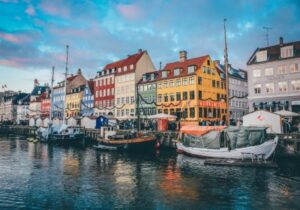
The government has also taken steps to improve the handling of hate crimes by strengthening police and prosecution services and enhancing police training in this area.
Danish society traditionally values human rights and social democracy, striving to build a fair and egalitarian society based on shared values and opportunities.
However, while progress has been made in promoting tolerance, challenges persist. Studies indicate that racial discrimination still affects hiring practices and some critics argue that Denmark’s approach to race and ethnicity can be problematic in their use of racial terminology.
2. New Zealand

The government actively promotes social cohesion through policies that foster inclusion and belonging, with the Treaty of Waitangi serving as a foundational document guiding relations between the Crown and Māori.
The country is committed to addressing inequalities and promoting equity, particularly for Māori and other minority groups. A strong legal framework, including the Human Rights Act 1993, exists to combat racism and discrimination.
While New Zealand is generally known for its tolerant and welcoming attitudes toward different cultures and religions, challenges persist, particularly in addressing systemic discrimination against Māori and other minorities.
3. Netherlands

This tolerant culture may be linked to its Calvinist routes that rely heavily on the following the Bible as well as their long history of international trade, the success of which relies on displaying and having respect for other cultures.
The Dutch proclaim themselves as tolerant as part of their national identity as they believe it is simply good for the economy and thus good for the country. Politics and business are also inextricably linked for the citizens of the Netherlands.
4. Finland
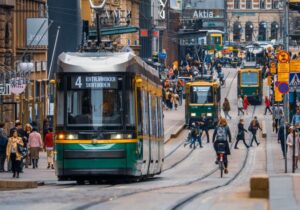
While the population is predominantly ethnically Finnish, the country has long recognized the rights of minority groups such as the Sami, Roma, and Swedish-speaking Finns. Efforts continue to address historical injustices and improve protections for these communities.
Immigration has increased Finland’s diversity in recent years, and the government promotes work-related immigration and integration through various support programs. However, challenges remain, as some groups, particularly the Roma and Somali communities, continue to face discrimination.
5. Canada

Furthermore, the Multiculturalism Act (1988) reinforces this by promoting the preservation of Canada’s diverse cultural heritage and ensuring social equality for all, including Indigenous peoples.
Provincial and territorial human rights laws provide additional protections against discrimination. Diversity is a core value in Canada, with the government actively promoting inclusion and equity.
The country has a long history of welcoming immigrants, contributing to a richly diverse population. This can particularly be seen in their inviting immigration programs such as the Permanent Residency Visa and the economy growing Startup Visa.
6. Norway
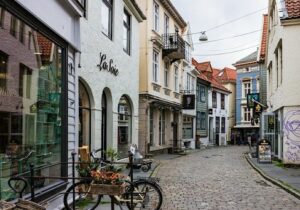
Openness, equality, and equal rights are core cultural values, which are reflected in daily life. The Equality and Anti-Discrimination Act of 2018 further reinforces these principles by prohibiting discrimination based on ethnicity, religion, and belief.
Norwegians have a strong sense of history and civic engagement, valuing tolerance, respect, and equality. Popular culture, including literature, music, and TV, increasingly embraces diversity, making inclusivity a natural part of Norwegian identity.
The European Commission against Racism and Intolerance (ECRI) acknowledges Norway’s progress in combating racism but highlights concern over unreported hate speech and a public debate often influenced by xenophobic and anti-migration rhetoric.
7.Iceland

Iceland’s Constitution and the Act on Equal Treatment in the Labor Market (2018) prohibit discrimination based on race, ethnicity, nationality, and religion. The Penal Code also criminalizes hate speech and incitement to racial hatred, ensuring legal safeguards against racism.
Iceland has seen an increase in immigration in recent decades, with growing Polish, Filipino, and Middle Eastern communities. While the country has historically been ethnically homogenous, it has made efforts to promote multiculturalism through education and integration programs.
8. Sweden
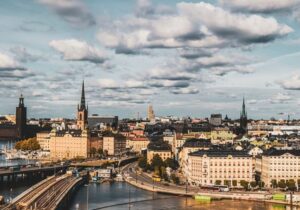
Swedish society values ethnocultural diversity, viewing it as something that enriches the majority culture. Governmental policies emphasize inclusion and cultural preservation, ensuring immigrants can maintain their cultural identities while integrating into Swedish society.
The country also takes a “post-racial” approach, aiming to be color-blind in matters of discrimination and social justice. While this is meant to promote equality, some critics argue that it can obscure systemic racism and hinder meaningful racial discussions.
Despite shifts in and restrictions to Sweden’s historically welcoming immigration policy, the country continues to uphold its tradition of tolerance and integration. It continues to have some of the most progressive integration policies globally.
9. Belgium
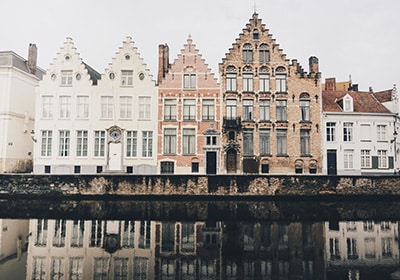
Belgium has comprehensive anti-discrimination laws, notably the Anti-Racism Act of 1981 and the Anti-Discrimination Act of 2007, which prohibit discrimination based on race, ethnicity, nationality, and religion.
The country also adheres to EU-wide human rights standards. Independent institutions like the Interfederal Center for Equal Opportunities and the Centre for Equal Opportunities and Opposition to Racism actively fight discrimination while promoting equal opportunities in the country.
Belgium is home to a diverse population, including large communities of people who are of Moroccan, Turkish, Congolese, and Sub-Saharan African descent. In many urban areas, multiculturalism is a part of daily life, and the government has implemented integration programs to support immigrants.
10. Ireland
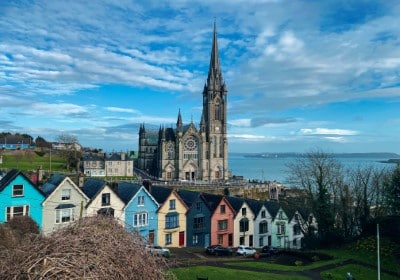
Anti-discrimination laws, along with institutions like the Irish Human Rights and Equality Commission, play a key role in safeguarding against racial bias. In addition, the 2017 Migrant Integration Strategy has helped increase awareness and reporting of racial discrimination.
Ireland performs well in international evaluations like the Migrant Integration Policy Index (MIPEX), particularly in areas such as political participation. The country provides inclusive voting rights and regularly consults with migrant communities, reflecting a commitment to inclusion.
Furthermore, Ireland has been encouraging non-Irish citizens to join their community with their Golden Visa program and the business-orientated Start-up Entrepreneur Visa (STEP). This not only helps diversify the country but also strengthens the Irish economy.
The Best Countries for Black Expats
Due to past colonialism and ongoing institutional racism in certain countries, Black expats must look a bit more carefully at where to settle than other races.
They need to look for countries with high levels of racial tolerance and anti-discrimination laws, visible Black communities, easy immigration, cultural connection or heritage to Black culture and opportunities for entrepreneurship.
1. Ghana
Ghana has a rich history and deep connection to the African diaspora and Accra has become a hub for Black Americans in particular. The government has even initiated the “Year of Return” program for those looking to reconnect with their roots.
2. Costa Rica
Costa Rica is not only a beautiful country but also stable, progressive and peaceful. There’s a large historic Afro-Caribbean population in Limon who are very welcoming to immigrants.
3. South Africa
South Africa provides the best of both worlds. Modern cities that will feel familiar to American expats mixed with true African culture. Johannesburg and Cape Town have large urban communities with plenty of Black professionals and creatives.
4. Mexico
Mexico is great for Black American expats as it is close to the United States. It is also affordable and has a vibrant culture to immerse yourself in. Mexico City, Oaxaca, and coastal towns like Puerto Escondido are expat-friendly and increasingly diverse.
5. Thailand
Thailand has a low cost of living, modern infrastructure and warm weather. Cities like Chang Mai and Bangkok have tight-knit expat communities that will make for a welcoming entry into this culturally interesting country.
Frequently Asked Questions About the Least Racist Countries in the World
What is race?
Race is the categorization of people based on perceived shared physical traits (such as skin color or nose shape) and ancestry.
Examples of race include Black or African American, White, Asian, Pacific Islander, Native American and many more.
What is racism?
Racism is the idea that a certain race is inferior or superior to another. People with racist views might consider other races as less deserving of certain things or even, in extreme instances, as sub-human. They will use the other person’s race as justification to treat them as “less than”.
What types of racism are there?
Racism can be overt or covert. Overt or clear racism is very distinguishable and occurs in public, around others.
Covert or hidden racism is a bit more subtle. It can be acts that are meant to subvert, distort, restrict or deny certain races access to privileges or benefits.
Which European countries are the least racist?
If you only consider nations in the European Union (EU), then Spain, Sweden, United Kingdom, Portugal and Poland ranked the highest in racial equality according to a survey.
Which countries rank the highest in acceptance of migrants?
According to the Global Passport Index’s Quality of Life ranking, countries like Portugal, Spain, Finland and Denmark score high in migrant acceptance.
Do multicultural societies tend to be less racist?
Yes, there have been studies that show people who live in or come from more diverse societies tend to be less racist. It’s not always the case but it can be a determining factor.
How does access to anti-discrimination laws affect inclusivity?
Access to anti-discrimination laws help ensure equal opportunities for all and prevents unfair treatment, promoting a society where all individuals (regardless of race) feel respected and valued.

 Gizane Campos
Gizane Campos 

